Reading groups
BLASt (Book Lovers Among Students) (American Studies)
 BLASt (Book Lovers Among Students) is a research circle run by the Department of American Studies: Literature and Media. Meetings, workshops and guest lectures organized as part of the Circle deal with various aspects of American literature and culture. The circle meets once a month and is open to all who wish to attend. Through the open nature of the discussions, we encourage student participants and attendees to contribute their own research discoveries. Every two years, the circle also organizes a student symposium Re-Examining American Literature (REAL), where young Americanists can present their research.
BLASt (Book Lovers Among Students) is a research circle run by the Department of American Studies: Literature and Media. Meetings, workshops and guest lectures organized as part of the Circle deal with various aspects of American literature and culture. The circle meets once a month and is open to all who wish to attend. Through the open nature of the discussions, we encourage student participants and attendees to contribute their own research discoveries. Every two years, the circle also organizes a student symposium Re-Examining American Literature (REAL), where young Americanists can present their research.
Group coordinator: dr Małgorzata Olsza
Last update: 2025-10-06
Canadian Literature in Perspective (CLIP)
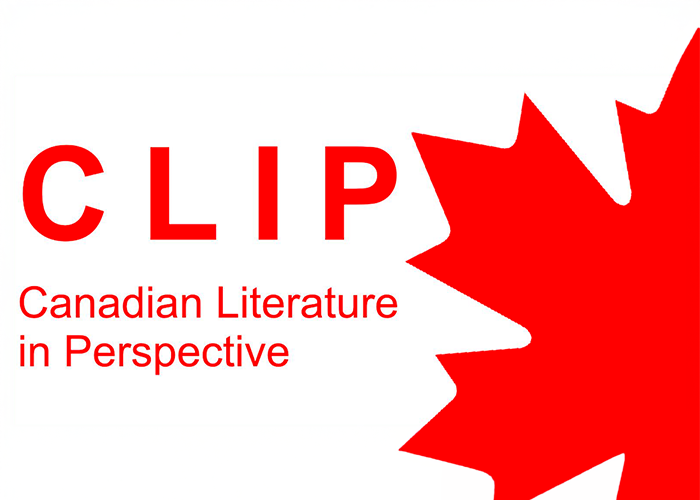 The meetings of CLIP Reading Group, organized by the Center for Canadian Literature, are devoted to open, text-based discussions and presentations on Canadian literature of different periods and genres. We also organise events, such as the Maple Syrup Day, to provide a venue for those interested in Canada to learn and talk about Canadian culture. The meetings and events are moderated by staff members and students passionate about Canada. Come and join us!
The meetings of CLIP Reading Group, organized by the Center for Canadian Literature, are devoted to open, text-based discussions and presentations on Canadian literature of different periods and genres. We also organise events, such as the Maple Syrup Day, to provide a venue for those interested in Canada to learn and talk about Canadian culture. The meetings and events are moderated by staff members and students passionate about Canada. Come and join us!
Look for Canadian Literature in Perspective (CLiP) on Facebook [external link], on Instagram [external link], and join us!
Group coordinator: prof. dr hab. Dagmara Drewniak
Last update: 2025-10-31
Celtic Research Circle
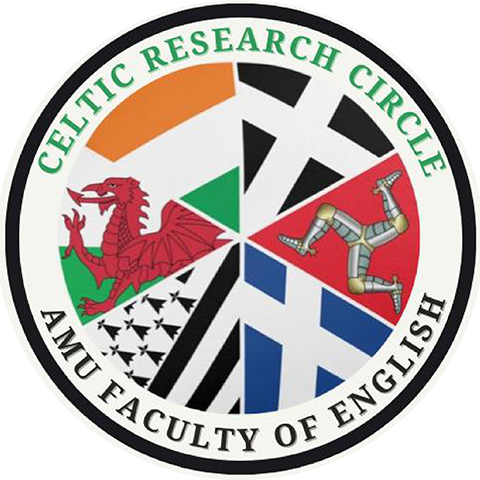 The Celtic Reading Group organized by the Celtic Studies Research Unit provides a friendly platform to discuss a wide variety of topics connected with contemporary Celtic countries and enables students to expand on their interests. Durings the meeeting, the BA and MA students as well as the staff and Ph.D. students of the Centre and guests from other institutions present their projects and research interests. We also organise translation worskshops, conversations in Welsh and Irish and film screenings. The meetings take place once or twice a month and are open to everyone interested in the topics discussed.
The Celtic Reading Group organized by the Celtic Studies Research Unit provides a friendly platform to discuss a wide variety of topics connected with contemporary Celtic countries and enables students to expand on their interests. Durings the meeeting, the BA and MA students as well as the staff and Ph.D. students of the Centre and guests from other institutions present their projects and research interests. We also organise translation worskshops, conversations in Welsh and Irish and film screenings. The meetings take place once or twice a month and are open to everyone interested in the topics discussed.
Coordinator: Dr Marta Listewnik
Last update: 2024-10-14
Collegium Draconum
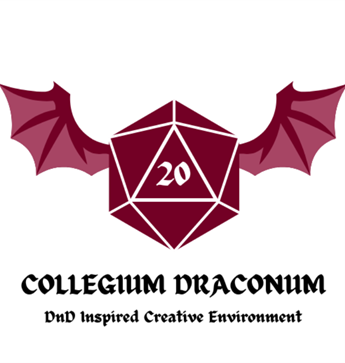 Collegium Draconum is a group aiming to connect members of the English Faculty interested in Role Playing Games, such as Dungeons and Dragons, Cyberpunk Red or the Call of Cthulhu and enable them to meet and play together in the comfort of the faculty building, providing not only the space, but also resources and support of other players and enthusiasts. The group welcomes everyone, regardless of their age or experience.
Collegium Draconum is a group aiming to connect members of the English Faculty interested in Role Playing Games, such as Dungeons and Dragons, Cyberpunk Red or the Call of Cthulhu and enable them to meet and play together in the comfort of the faculty building, providing not only the space, but also resources and support of other players and enthusiasts. The group welcomes everyone, regardless of their age or experience.
Group coordinator: John Casale
For more information please contact Justyna Damec or join our Discord server [external link].
Last update: 2025-01-16
Critical Approaches to Language in Society
The Critical Approaches to Language in Society reading group brings together three existing groups:
- Language and Communication in Media and Politics (LANCOM)
- Language, Gender, and Sexuality (LaGeS)
- Communication in Healthcare (MEDICOM)
The reading group offers a forum for those interested in language, the role it plays in society and how society structures how we communicate. Participants address a range of topics relevant to communication and interaction, including health, age, gender, social rank and ethnicity.
We are guided by the mission to support inclusivity and to expose discriminatory attitudes constructed through language. Our monthly meetings are a chance for staff and students to come together and share their work, offering a space for presentations on current research. Students will be inspired to conduct their own research and will be able to present it, for example, at undergraduate and postgraduate conferences.
For information about the group, contact dr Magdalena Zabielska.
Last update: 2024-11-12
Language and Communication in Media and Politics (LANCOM)
This reading group brings together researchers and students of various disciplines including Linguistics, Political Sciences, Social Sciences, Communication studies and Journalism studies who are interested in applying critically discursive analytical techniques to issues of politics and the media.
Meetings are an inter-disciplinary space for open critical debate which hopes to facilitate scholarly self-development, which in turn may assist academic output.
The group has three aims: firstly to investigate and discuss new approaches to Critical Discourse Analysis (CDA), secondly to apply CDA approaches to the analysis of political and media generated talk and text and finally, to provide an opportunity for participants to present findings of empirical or theoretical research in this field.
Potential results of the group’s activity includes collaborative work leading to submissions to leading journals in the field as well as participation in national and international conferences.
The reading group is open to faculty staff and students both undergraduate and graduate.
For information about the group contact dr Samuel Bennett
Last update: 2024-10-16
Language, Gender, and Sexuality (LaGeS)
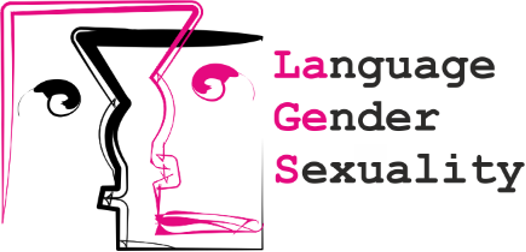 LaGeS is a forum set up to discuss current issues in the field of language, gender and sexuality. We view both gender and sexuality as socially constructed phenomena, which are prone to constant change. This makes language one of the main tools which we use to construct ourselves as gendered and sexualized beings. The words that best characterize our meetings are ‘interdisciplinarity’ and ‘open-mindedness’.
LaGeS is a forum set up to discuss current issues in the field of language, gender and sexuality. We view both gender and sexuality as socially constructed phenomena, which are prone to constant change. This makes language one of the main tools which we use to construct ourselves as gendered and sexualized beings. The words that best characterize our meetings are ‘interdisciplinarity’ and ‘open-mindedness’.
We aim to provide a platform for open discussions bringing together established and beginning academics as well as students in this fascinating post-structuralist subfield of linguistics. The LaGeS meetings are devoted to presenting research results of WA students, PhD students and faculty staff as well as discussing most up-to-date literature falling in the scope of language & gender & sexuality.
For more information please contact prof. Joanna Pawelczyk
Last update: 2025-11-05
Communication in Healthcare (MEDICOM)
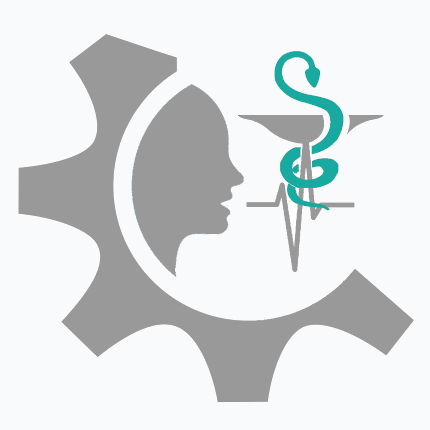 The Communication in Healthcare (MEDICOM) discussion group promotes the study of communication processes that are involved in the maintenance of good health and high-quality medical treatment. Group members use their expertise in linguistics to analyse verbal and non-verbal practices found, for example, in:
The Communication in Healthcare (MEDICOM) discussion group promotes the study of communication processes that are involved in the maintenance of good health and high-quality medical treatment. Group members use their expertise in linguistics to analyse verbal and non-verbal practices found, for example, in:
- medical interviews
- medical record documentation
- activity of online peer support groups for patients
- portrayals of medical care in popular culture
- health promotional materials
Our discussion group is suitable for everybody who would like to increase their awareness of the important role that communication plays in patients’ and doctors’ healthcare-related experiences. During regular meetings, both students and academics get an opportunity to present their projects as well as participate in scholarly discussions, which inspires new ideas for research and application of generated knowledge in practice.
For additional information, everyone is welcome to contact mgr Zuzanna Jechna.
Last update: 2024-11-12
Culture Vultures
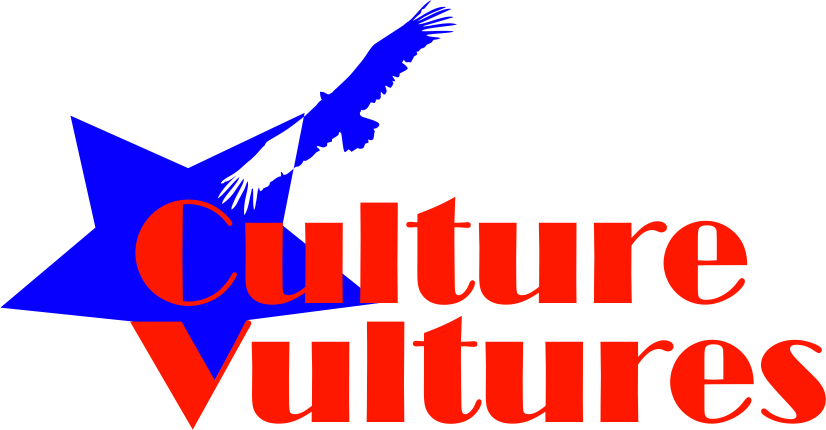 The “Culture Vultures” discussion club, which has been active since 2014, is run by the Department of Studies in Culture and is addressed to students and staff of the Faculty of English. Its goal is to create a friendly forum for discussing various issues of broadly understood culture of the English-speaking countries. Members of our Department propose for consideration topics related to their research fields but also take up for discussion some issues of current interest as well as those that go beyond the framework designated by the name of our Department. Some meetings are also organized by students proposing topics important or interesting to them and presenting their first scientific research. In the “In conversation with” series, we expand the area of discussion by inviting writers, musicians, as well as scholars from outside the English Faculty. The issues discussed so far have touched upon, for example, the concepts of identity, ethnicity, as well as politics, art, and cultural life, often films. One meeting a year is specifically dedicated to the integration of foreign students who study at our Faculty with Polish students.
The “Culture Vultures” discussion club, which has been active since 2014, is run by the Department of Studies in Culture and is addressed to students and staff of the Faculty of English. Its goal is to create a friendly forum for discussing various issues of broadly understood culture of the English-speaking countries. Members of our Department propose for consideration topics related to their research fields but also take up for discussion some issues of current interest as well as those that go beyond the framework designated by the name of our Department. Some meetings are also organized by students proposing topics important or interesting to them and presenting their first scientific research. In the “In conversation with” series, we expand the area of discussion by inviting writers, musicians, as well as scholars from outside the English Faculty. The issues discussed so far have touched upon, for example, the concepts of identity, ethnicity, as well as politics, art, and cultural life, often films. One meeting a year is specifically dedicated to the integration of foreign students who study at our Faculty with Polish students.
Coordinator: dr Elżbieta Wilczyńska
Last update: 2024-10-31
Found in Translation Discussion Group
Meetings are organised by the Department of Translation Studies. They provide an opportunity to discuss various aspects of translation, including audiovisual translation (AVT), and interpreting. The meetings involve lectures by invited speakers, workshops, and research presentations by WA students and staff.
Coordinator: prof. UAM dr hab. Paweł Korpal
Last update: 2024-11-13
History of English Language Lovers (HELL)
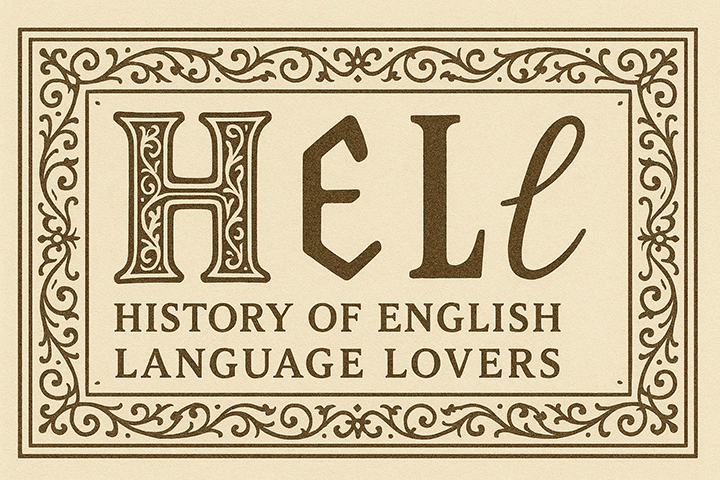 We’re a group of students and members of the Department of the History of English, interested in how language, history and culture connect and how these connections can be explored through analysing discourse in all its forms. We meet once a month on Wednesdays and we get our hands on real texts and images from the past to see how people once made sense of their world and how that still echoes today.
We’re a group of students and members of the Department of the History of English, interested in how language, history and culture connect and how these connections can be explored through analysing discourse in all its forms. We meet once a month on Wednesdays and we get our hands on real texts and images from the past to see how people once made sense of their world and how that still echoes today.
Co-ordinators: dr Justyna Rogos-Hebda and dr Paulina Zagórska
Last update: 2025-11-25
Lexicography and Lexicology
The main objective of the Lexicography and Lexicology Reading Group is to present and discuss various topics connected with the meaning of words as well as the presentation of the lexicon in monolingual and bilingual dictionaries. Some of the issues discussed during the monthly meetings of the group over the last couple of years included:
- semantic analysis of English prepositions
- definitions in monolingual pedagogical dictionaries of the English language with emphasis on verb coding
- usage labels in dictionaries
- metonymy and metaphor as applied in the definitions in monolingual dictionaries for learners of English
- comparison of definitions of abstract nouns in dictionaries for native speakers and learners of English
- corpus case studies
- socio-cognitive model of language
- bilingual dictionary in the translation practice
- electronic dictionaries and their role in acquiring vocabulary
The meetings are also an occasion to exchange news on recent conferences and workshops attended by members of the Department of Lexicography and Lexicology or WA students.
Love Lit Club
 The activities of the Love Lit Club consist of a monthly book club, as well as a poetry reading circle which organizes periodic events. The monthly book club is student-led, with student members voting upon the titles for inclusion and (typically) with the student who proposed the book subsequently moderating its discussion. Discussions of five selected works by writers from the British Isles - and/or the British Commonwealth (excluding Canada) - are planned for the upcoming academic year.
The activities of the Love Lit Club consist of a monthly book club, as well as a poetry reading circle which organizes periodic events. The monthly book club is student-led, with student members voting upon the titles for inclusion and (typically) with the student who proposed the book subsequently moderating its discussion. Discussions of five selected works by writers from the British Isles - and/or the British Commonwealth (excluding Canada) - are planned for the upcoming academic year.
The club’s Poetry Reading Circle has planned two events for each semester of the 2024-2025 academic year: a film night and discussion of The Green Knight; a reading circle concentrated on ekphrastic poetry; a book club session (devoted to Bernadine Evaristo’s verse novel Lara); and a final hybrid meeting (a reading circle on poems about poetry, followed by a creative writing session). A fifth poetry event might be organized for May, in the event of propositions from the student members.
Facebook page [external link]
Faculty advisore: prof. dr hab. Liliana Sikorska, dr Jacek Olesiejko, dr Jeremy Pomeroy
Last update: 2024-11-05
Oranjes Reading Group
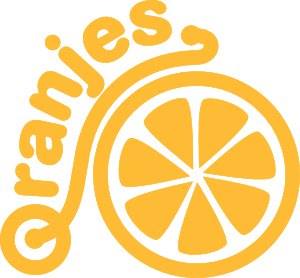 The main objective of the Oranjes Reading Group is to introduce the culture of Dutch-speaking countries to students of the Faculty of English as well as the entire academic community. Through various initiatives, we promote the traditions, literature, art, and Dutch language—both within the university and beyond. As part of our activities, we organize film nights, guest speaker events, workshops for high school students from Poznań and its vicinity, and a poster session at the Young Linguists’ Meeting in Poznań conference.
The main objective of the Oranjes Reading Group is to introduce the culture of Dutch-speaking countries to students of the Faculty of English as well as the entire academic community. Through various initiatives, we promote the traditions, literature, art, and Dutch language—both within the university and beyond. As part of our activities, we organize film nights, guest speaker events, workshops for high school students from Poznań and its vicinity, and a poster session at the Young Linguists’ Meeting in Poznań conference.
Coordinators: dr Mikołaj Buczak and dr Robert de Louw
Facebook [external link]
Instagram: @niderlandzkiuam [external link]
Last update: 2024-11-14
Peer Progress Project
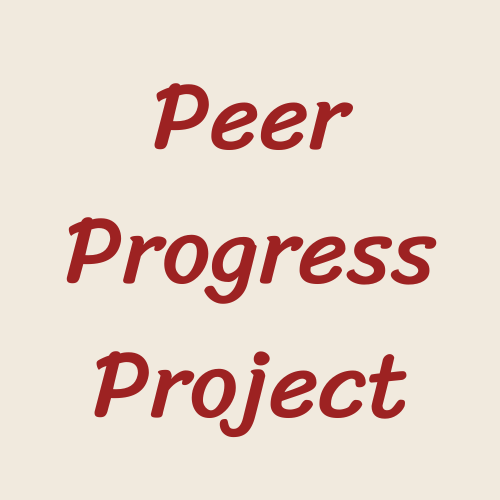 Peer Progress Project is a student reading group dedicated to supporting students in the process of writing their theses and developing academic skills. The group focuses on peer-to-peer exchange of experiences and practical guidance related to research, time management, academic writing, and text editing. The initiative promotes collaboration, mutual support, and the development of research competences within an academic community that values shared learning and progress. The group is open to all undergraduate and graduate students.
Peer Progress Project is a student reading group dedicated to supporting students in the process of writing their theses and developing academic skills. The group focuses on peer-to-peer exchange of experiences and practical guidance related to research, time management, academic writing, and text editing. The initiative promotes collaboration, mutual support, and the development of research competences within an academic community that values shared learning and progress. The group is open to all undergraduate and graduate students.
Group coordinators: mgr Zuzanna Witt and Shane Nahumko, B.A.
Last update: 2025-10-31
Phon&Phontastic
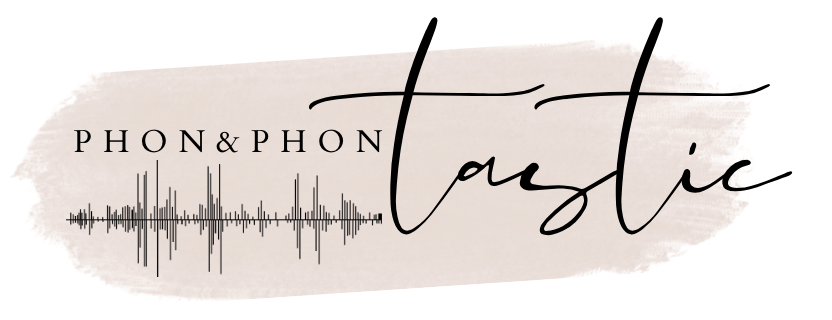 Phon&Phontastic reading group is a place where students, researchers, and faculty dive into the fascinating world of phonology and phonetics. Combining the strengths of the long-standing Phon&Phon and the student-focused Phontastic, we meet (roughly) monthly to alternate between formal research presentations and practical, hands-on workshops. Together, we explore current research, methodologies, and the unique phonetic and phonological features of languages worldwide. This group is open to B.A., M.A., Ph.D. students and staff members, offering an inclusive space for both academic inquiry and practical skill-building.
Phon&Phontastic reading group is a place where students, researchers, and faculty dive into the fascinating world of phonology and phonetics. Combining the strengths of the long-standing Phon&Phon and the student-focused Phontastic, we meet (roughly) monthly to alternate between formal research presentations and practical, hands-on workshops. Together, we explore current research, methodologies, and the unique phonetic and phonological features of languages worldwide. This group is open to B.A., M.A., Ph.D. students and staff members, offering an inclusive space for both academic inquiry and practical skill-building.
Whether you’re aiming to deepen your research knowledge or sharpen your practical skills, join us in exploring the sound structures that shape human languages.
Coordinators: prof. UAM dr hab. Anna Balas and dr Ewelina Wojtkowiak
Last update: 2025-10-31
PsychLing Discussion Club
PsychLing Discussion Club is a club for everybody interested in issues related to psycholinguistc and neurolinguistic aspects of language processing. Some of the topics discussed so far have included: the structure of the bilingual and multilingual mental lexicon, the processing of language in clinically impaired populations (in autistic individuals and aphasic patients), the neurological underpinnings of bilingualism, as well as various methodologies of psycholinguistic and neurolinguistic experimentation. The meetings have featured presentations by members of the group, discussions and debates in a friendly atmosphere. They have provided opportunities to report on experiments, suggest new research proposals or simply exchange ideas and opinions among people who share an interest in language acquisition and processing. In the meetings to come we encourage student presentations and we would like to broaden the scope of issues addressed so as to include e.g. psycholinguistic aspects of interpreting and translation, metalinguistic awareness, effects of bilingualism on L1, processing of figurative language or task switching in bilingual speakers.
Co-ordinator: dr Olha Lehka-Paul
Last update: 2025-01-10
Syn & Sin
 “Syn & Sin” is a reading and discussion group hosted by the Department of English-Polish Comparative Linguistics. Through monthly meetings, faculty, students, and invited speakers share their ongoing or completed research and discuss recent publications in syntax. All those interested in syntax are warmly welcome to join.
“Syn & Sin” is a reading and discussion group hosted by the Department of English-Polish Comparative Linguistics. Through monthly meetings, faculty, students, and invited speakers share their ongoing or completed research and discuss recent publications in syntax. All those interested in syntax are warmly welcome to join.
Coordinator: dr Sylwiusz Żychliński
Last update: 2024-10-31
Talk In Progress (TIP)
 “Talk In Progress” Discussion Club is a space created for students who want to improve their discussion and public speaking skills while putting English to practice. Meetings, held once a month, provide an opportunity to practice crafting speeches, delivering presentations, and developing argumentation skills, both within academic contexts and beyond. We welcome people who feel confident in discussions and want to advance their language competence, as well as those who are only beginning their journey with debating and want to learn new skills in a supportive environment. Our aim is not only to improve language fluency but also to build students' confidence and enhance their communication abilities, all within a friendly atmosphere.
“Talk In Progress” Discussion Club is a space created for students who want to improve their discussion and public speaking skills while putting English to practice. Meetings, held once a month, provide an opportunity to practice crafting speeches, delivering presentations, and developing argumentation skills, both within academic contexts and beyond. We welcome people who feel confident in discussions and want to advance their language competence, as well as those who are only beginning their journey with debating and want to learn new skills in a supportive environment. Our aim is not only to improve language fluency but also to build students' confidence and enhance their communication abilities, all within a friendly atmosphere.
Coordinator: mgr Ewa Olszewska
Last update: 2025-01-15
Teachers in Practice — TiP
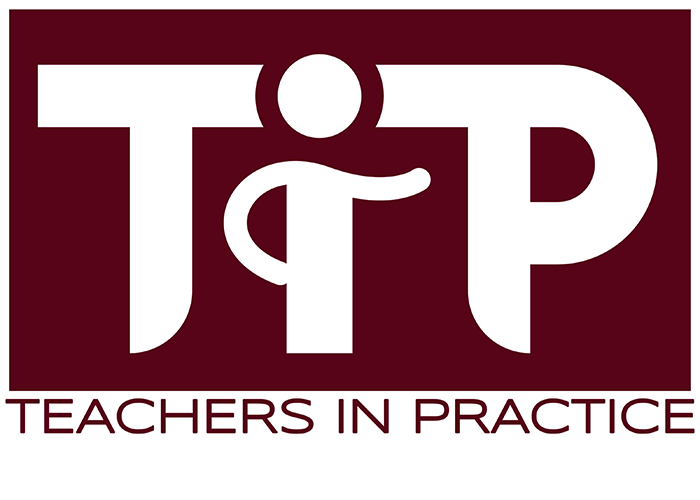 For all WA Staff and students interested in education, passionate about teaching and learning, not only English.
For all WA Staff and students interested in education, passionate about teaching and learning, not only English.
“Teachers in Practice” is a group of WA staff members and students who love learning about people and education. We talk about new ideas, share our knowledge, skills and experiences to become better teachers and learners. Every year we invite real Teachers in Practice to our meetings and we learn a lot from them about different educational contexts around. We also take part in charity events, where we do our best to help people learn English.
Leader: dr Anna Broszkiewicz
Facebook: Teach_WA [external link]
Last update: 2025-01-10
TRACE — Traditions, Research, American Culture and English
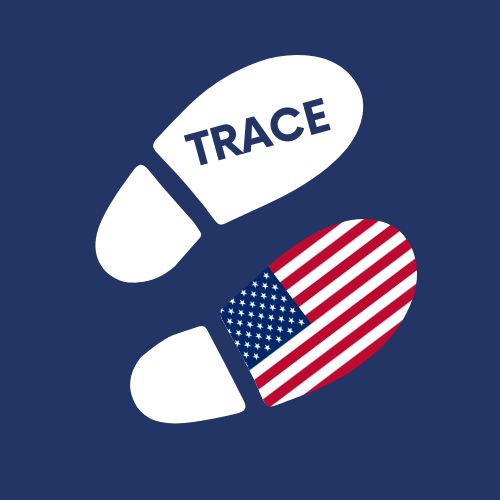 TRACE is a student-led reading group dedicated to the study of the language, culture, and traditions of the United States. The group provides a forum for discussion of American English, cultural practices, and traditions, emphasizing the interplay between language, culture, and identity. TRACE supports participants in learning, collaboration, and the development of research skills within a supportive academic environment. The group is open to all students and faculty members. If you are interested in the language, culture, and traditions of the US, we invite you to join our meetings.
TRACE is a student-led reading group dedicated to the study of the language, culture, and traditions of the United States. The group provides a forum for discussion of American English, cultural practices, and traditions, emphasizing the interplay between language, culture, and identity. TRACE supports participants in learning, collaboration, and the development of research skills within a supportive academic environment. The group is open to all students and faculty members. If you are interested in the language, culture, and traditions of the US, we invite you to join our meetings.
Coordinator: prof. UAM dr hab. Radosław Dylewski
Last update: 2025-12-04